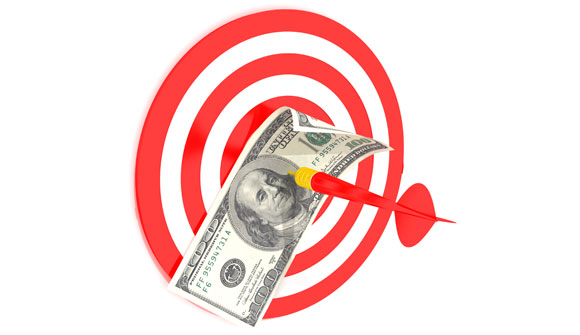
Monetarists Are Out of Ideas … Steve Williamson of the Federal Reserve Bank of St. Louis for the past three years or so has been trying to convince the macroeconomics world to consider a bold new theory — that central bank policy works in reverse, and that low interest rates cause low inflation. This is an idea sometime referred to as Neo-Fisherism. -Bloomberg
This article examines the theory that over time higher interest rates generate higher inflation. The idea here is that central banks need inflation to operate monetary policy appropriately.
This concept is a direct attack on Austrian, free-market economics. Current Austrian theory holds that money is a commodity like any other. Low interest rates basically cause more “money” – currency – to be created.
The problem with Austrian theory within this context is that interest rates have been exceptionally low since 2008 without the kind of inflation that might be expected to present itself.
Of course, we should note there IS more inflation than the government admits. But the argument remains that the correlation between low rates and additional liquidity is certainly not functioning in an optimal way. One theory as to why additional currency hasn’t flooded markets and further debased the money supply (causing significant price inflation) is that much of the “new” money (trillions) is locked up in securities held by China and Japan. Thus as fast as the new money enters the economy it is removed.
This may indeed be the case. And yet … the larger issue really is why central banks need to manage the money supply at all?
Why do central banks need “set” rates and hike and lower them? Why do central bankers need “tools” to manage money? Why do central banks need to exist?
More:
You would think macroeconomists and central bankers would be on the hunt for new ideas, since monetary policy doesn’t look like it’s doing anything right now. In the U.S., an extended period of low interest rates, accompanied by massive quantitative easing and forward guidance, didn’t seem to accomplish much.
In Japan, the central bank’s mightiest efforts at easing — the Bank of Japan now owns 60 percent of the country’s market for exchange traded funds — produced nothing more than a brief, anemic burst of inflation.
The country’s prices are now stagnant or falling again. Meanwhile, supporters of activist monetary policy are calling for new measures such as raising inflation targets, very negative interest rates, nominal gross domestic product targeting (which combines GDP and the inflation rate), and so-called helicopter money — basically mailing checks to people.
This last graf points out clearly the problem with central banking. Having created the illusion that money needs to be “managed” by a central authority, bankers then need to generate more tools and more activity to compensate for what, inevitably, doesn’t work.
This editorial concludes with a plea for an “acceptable compromise” that will allow those who believe central bankers ought to do as little as possible to reach an understanding with their activist colleagues. Monetary policy is “frozen in amber” and only through such compromise can it be appropriately activated.
Of course, we wish the opposite. We hope that monetary policy continues to reveal its dysfunction. Monetary policy is nothing but price-fixing and price-fixing eventually creates great distortions and disasters. Seen from the broadest perspective, this is exactly what those who put central banking into practice wished to achieve.
The arguments over central banking policy are ultimately fatuous. One can arrive only at one conclusion: Monopoly money management enforced by the state will create extraordinary catastrophes. Those catastrophes then give the backers of central banking the justification to suggest new and more centralized forms of monetary control.
Central banking is nothing but an authoritarian ruse. The endless palaver of mathematically adept academics and economists prove to be nothing but purposeful distractions.
In the final analysis we don’t need to argue about how central banks create this or that economic effect. It is enough to know that government force applied to any monetary or industrial operation will always end in disaster.
Conclusion: People should spend less time discussing the permutations of central bank policy and more time figuring out how to get rid of central banking altogether.
